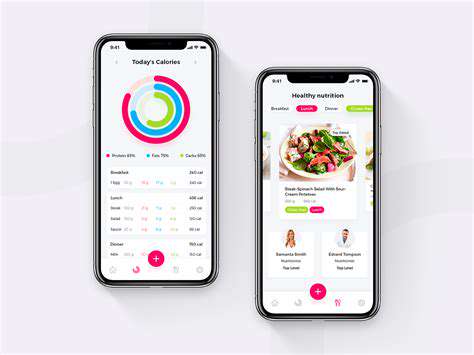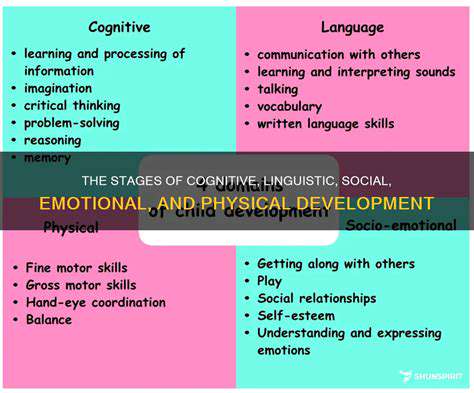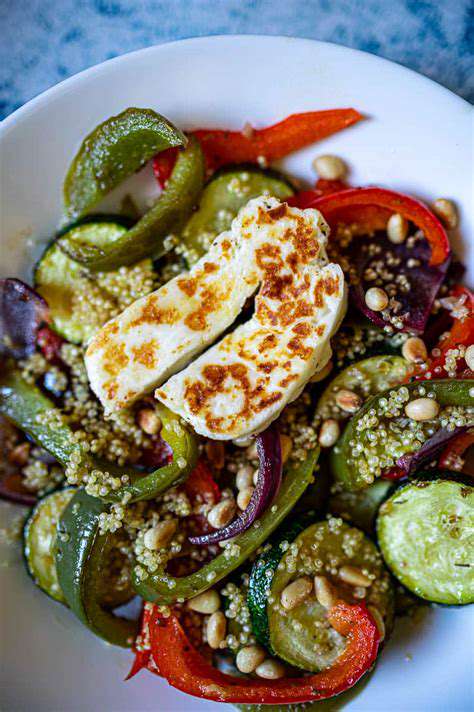Healthy Eating on a Budget: Smart Choices
Planning Your Meals for Budget-Conscious Eating

Understanding Your Budget
A crucial first step in planning your meals for a budget-conscious lifestyle is a thorough understanding of your current financial situation. This involves analyzing your income and expenses to identify areas where you can potentially cut back without sacrificing essential needs. Understanding your current spending habits, particularly on food, is paramount to developing a realistic and effective meal plan. Tracking your food spending for a week or two can provide valuable insights into where your money is going and highlight potential areas for savings.
Once you have a clear picture of your budget, you can begin to set realistic goals for your food spending. Remember, meal planning doesn't mean sacrificing flavor or nutritional value; it's about making smart choices that align with your financial constraints. Prioritizing affordable, nutritious ingredients will help you create delicious and satisfying meals without breaking the bank.
Creating a Meal Plan
Developing a weekly meal plan is a highly effective strategy for managing your food budget. This involves selecting meals that fit within your budget and dietary needs. Planning ahead allows you to shop strategically, minimizing impulse purchases and reducing food waste. By creating a detailed meal plan, you can avoid the last-minute, often more expensive, decisions at the grocery store.
Consider incorporating recipes that use affordable ingredients and are easy to prepare. This will save you time and money while ensuring you enjoy delicious and nutritious meals. Researching budget-friendly recipes online or in cookbooks can be incredibly helpful in this process. Knowing what you'll be eating each day will also help you avoid unnecessary food cravings and impulse purchases.
Shopping Smart
Effective grocery shopping is key to adhering to your meal plan and budget. Create a shopping list based on your meal plan, ensuring you only purchase the ingredients you need. This prevents overspending on items you may not use. Sticking to your shopping list will not only save you money but also minimize food waste.
Take advantage of sales and discounts at your local grocery store. Check flyers and compare prices to find the best deals. Buying in bulk for staples like rice, beans, and pasta can also save you money over time. Buying in bulk for non-perishable items can be a great way to save money and reduce trips to the store.
Utilizing Leftovers and Adaptability
Learning to effectively use leftovers is a simple yet highly effective way to reduce food waste and save money. Plan meals that allow you to use leftover ingredients in future meals. This can significantly lower your grocery bill and reduce food waste. Adapting your meal plan to accommodate leftover ingredients is an important part of minimizing food waste.
Be prepared to adjust your meal plan based on what's on sale or what's in season. This allows for flexibility and helps you to make the most of your budget. By being adaptable, you can still enjoy a variety of meals without the stress of sticking rigidly to a plan that doesn't fit your circumstances.
Smart Shopping Strategies for Healthy Eating on a Budget
Planning Your Meals
Creating a weekly meal plan is crucial for smart shopping and healthy eating on a budget. Planning ahead allows you to precisely calculate the ingredients needed, preventing impulse purchases and food waste. This detailed meal plan should incorporate a variety of nutritious foods, including fruits, vegetables, lean proteins, and whole grains. By anticipating your meals, you can make a shopping list tailored to your needs, minimizing the risk of buying unnecessary items and sticking to your budget.
Consider incorporating leftovers into future meals to minimize food waste and maximize your budget. This strategy can be particularly helpful for budget-conscious individuals, as it reduces the need to purchase new ingredients for each meal.
Utilizing Budget-Friendly Protein Sources
Lean proteins like beans, lentils, and chickpeas are excellent budget-friendly options. These nutritious staples are packed with protein and fiber, keeping you feeling full and satisfied while supporting your healthy eating goals. Substituting chicken or beef with these affordable alternatives can significantly reduce your grocery bill without compromising the nutritional value of your meals. Experiment with different bean-based dishes to discover new flavor combinations and enjoy the versatility of these inexpensive protein sources.
Exploring budget-friendly cuts of meat, such as flank steak or ground turkey, can also be a smart strategy. These options provide a good source of protein at a more affordable price point compared to pricier cuts.
Stock Up on Seasonal Produce
Seasonal fruits and vegetables are typically more affordable and flavorful. Taking advantage of local farmers' markets or grocery store sales on seasonal produce allows you to enjoy fresh, nutritious ingredients without breaking the bank. Planning your meals around seasonal produce can help reduce food costs and promote healthy eating habits.
Embrace Cooking at Home
Cooking at home is significantly more economical than eating out. By preparing your meals yourself, you have complete control over the ingredients and can avoid hidden costs associated with restaurant meals. Learning basic cooking skills and experimenting with new recipes can greatly expand your culinary repertoire and help you create delicious and healthy meals on a budget.
Cooking at home also allows for greater control over portion sizes and healthier choices. Avoiding excessive sodium, unhealthy fats, and added sugars in restaurant meals is easier when you cook at home.
Mastering the Art of Meal Prep
Meal prepping is a fantastic strategy for healthy eating on a budget. By preparing several meals or portions in advance, you save time during the week and prevent impulsive, often more expensive, food choices. This method allows you to plan your meals based on your schedule, making healthy eating a more sustainable part of your routine. Plus, meal prepping can help reduce food waste, further optimizing your budget-conscious approach to healthy eating.
Smart Shopping Strategies
Creating a detailed shopping list based on your meal plan and sticking to it is vital for smart shopping. Avoid impulse purchases and focus on the items you need, keeping your spending in check. Comparing prices between different brands and stores can save you money without compromising on quality. Checking for sales and discounts on items you regularly purchase can significantly reduce your grocery costs over time.
Utilizing Pantry Staples
Leveraging pantry staples like beans, rice, pasta, and canned goods can be a game-changer for budget-conscious healthy eating. These items are often inexpensive and can be incorporated into a variety of meals. Using these ingredients creatively can lead to delicious and nutritious meals without requiring frequent trips to the grocery store and excessive spending.
Exploring recipes that utilize pantry staples can help diversify your meals and prevent boredom with your diet. These recipes will help you get the most out of your ingredients and reduce food waste, further optimizing your budget.











